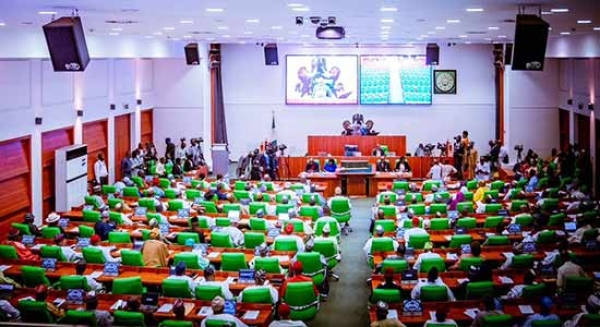The House of Representatives has called on the Federal Government to reverse the recently increased prices of premium motor spirit (PMS), otherwise known as petrol and cooking gas.
The News Agency of Nigeria (NAN) reports that the call was a sequel to a resolution to a motion by the Minority Leader, Rep. Kingsley Chinda (PDP-Rivers) at plenary in Abuja on Wednesday.
Chinda, while moving the motion, stressed the need for interventions targeted at price relief, tax reductions, or subsidies on cooking gas, also called liquefied petroleum gas (LPG) for low-income households.
He noted that Nigeria, as an oil-producing nation, had historically relied on petroleum products and cooking gas (LPG) as essential sources of energy for both domestic and industrial purposes.
The lawmaker stated that in recent months, the prices of petrol and cooking gas had skyrocketed and continued to do so, thus creating an unsustainable financial burden on ordinary Nigerians and exacerbating the cost of living.
According to him, the removal of fuel subsidies, coupled with global oil price volatility and the depreciation of the naira, had contributed significantly to the rising cost of petrol and cooking gas for households.
“Nigerians are worried that the escalating fuel and gas prices are impacting on the transportation, food, essential goods and healthcare as well as increasing inflation.
“Further push on the prices of these two items had exposed many families to deeper financial hardship.
“Businesses, particularly small and medium enterprises (SMEs), are struggling to manage their operational costs due to increased fuel prices, threatening economic stability and job security.
“The Federal Government has the refining capacity to address some of these issues but has yet to deliver significant results in this regard.
“The rising cost of petrol and cooking gas poses a significant threat to the livelihood of millions of Nigerians and unchecked inflationary pressure caused by the increased prices can lead to social unrest, increased poverty rates, and negative long-term economic effects,” he said.
Chinda said that unless urgent and pragmatic steps were taken to control the rising cost of petrol and cooking gas, the nation would go into economic crisis, leading to negative outcomes like increased crime and mortality rates.
Consequently, the house called on Nigerian National Petroleum Corporation Limited (NNPCL), Ministry of Petroleum Resources and other relevant agencies to expedite the repair/maintenance of domestic refineries.
According to the lawmakers, an increase in local refining capacity will serve as a stop-gap measure to reduce the dependence on imported refined petroleum products.
The Green Chambers also urged the Central Bank of Nigeria (CBN) to implement monetary policies that would mitigate the adverse effects of petrol price hikes on inflation, particularly with regard to essential goods and services.
The house urged the federal government to explore alternative energy sources and diversify the country’s energy mix to reduce reliance on petrol and gas by promoting renewable energy solutions that were more sustainable and affordable.
The lawmakers urged state governments to adopt policies that could alleviate the financial burden on the citizens, such as waiving taxes or levies on transportation and goods affected by high petrol costs.
In his ruling, Speaker Tajudeen Abbas mandated the Committees on Petroleum Downstream and Legislative Compliance to ensure compliance and report back to the house within two weeks for further legislative actions.


